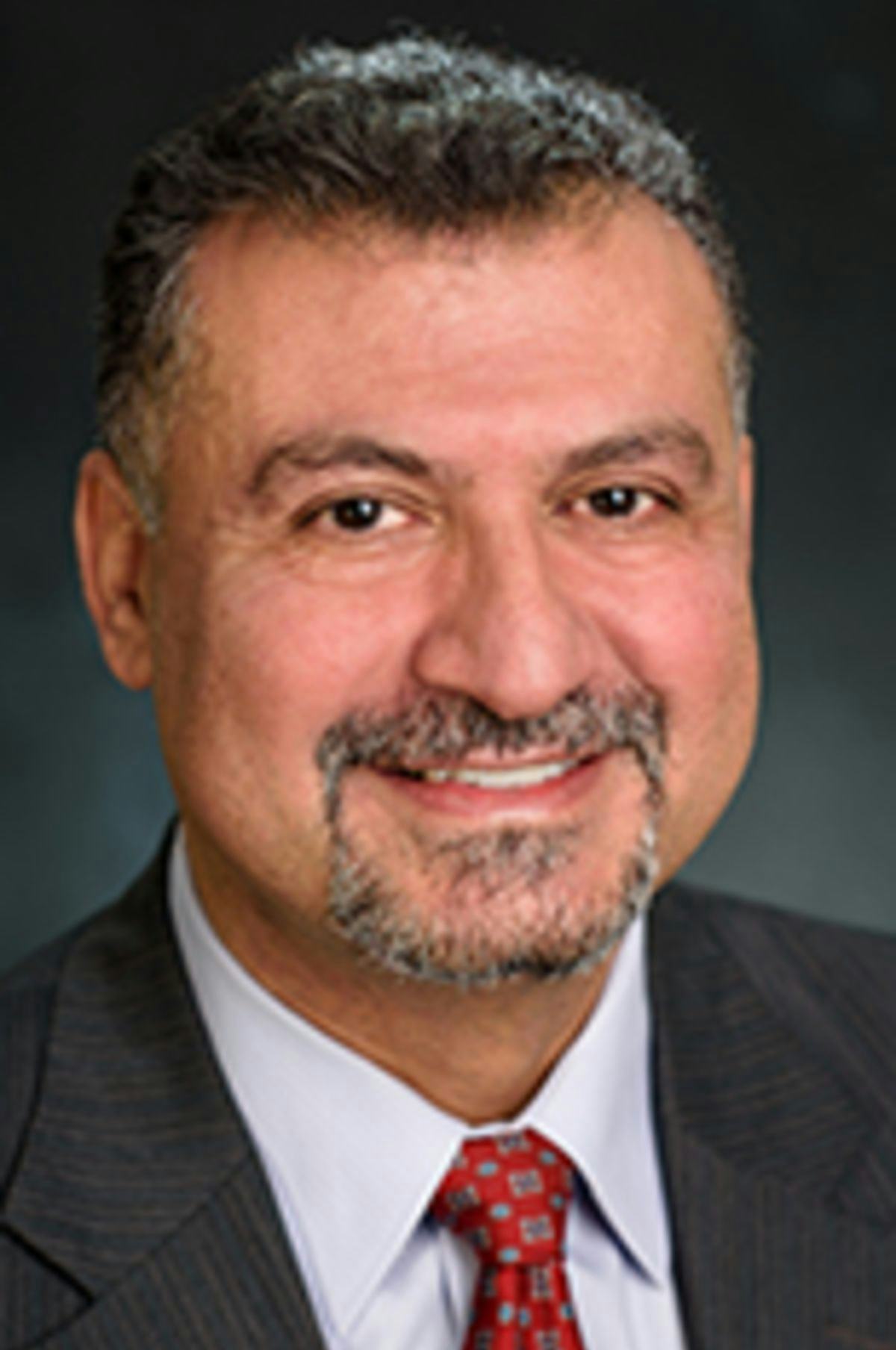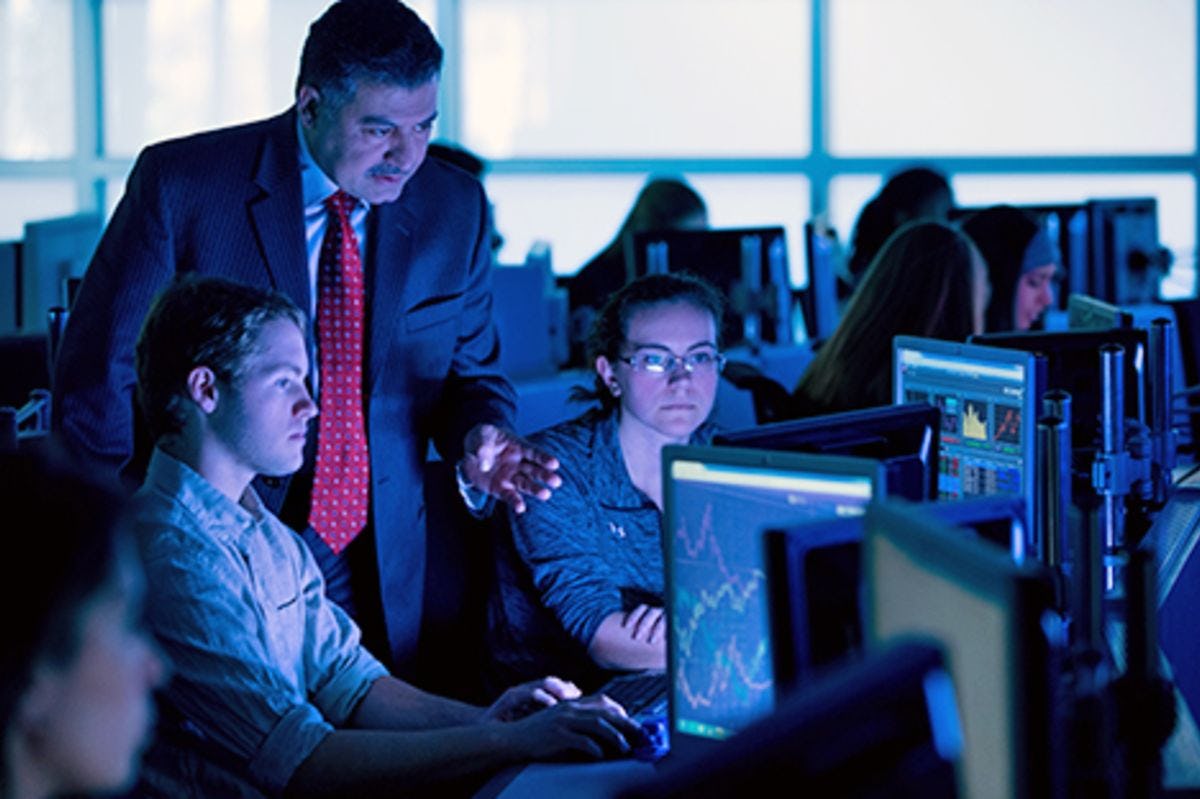High Five: Prudential Exec Says Quintet of Stevens Degrees are Key to His Career Success
Ortega, First Graduate of Financial Engineering Ph.D. Program, Learned Value of Hard Work at Stevens
Luis Ortega will be quick to tell you that the skills he learned as a student at Stevens Institute of Technology helped him ascend the ladder at Goldman Sachs until this spring, when he accepted a leadership role at Prudential.
But with a total of five degrees from Stevens, including a Ph.D., it’s hard to imagine there’s a classroom lesson he doesn’t have committed to heart by now.
And while those lessons in math, management and modeling helped Ortega cultivate the skillset that made him attractive to Prudential, he said, equally important to his career was the emphasis on hard work Stevens instilled in him as a freshman.
“Stevens is a community of smart people, but it’s a community where people work very hard,” he said. “Even if I’m not the smartest person in the room, a willingness to work hard often is the difference maker in business. When I was at Goldman Sachs and Verizon Wireless, I encountered many Stevens students, and in almost every instance, I noticed they’re among the top performers, and I think again it’s the result of learning to be a very hard worker.”
Close relationships with faculty
Like many potential students, he heard of Stevens through friends, but as a boy growing up in Ecuador, there was already a well-established alumnus in the public forum — former President Leon Febres Cordero, who earned a master’s degree from Stevens in 1953. On top of that, the university’s strong reputation in engineering made the decision to attend Stevens an easy one for Ortega.
And his positive experiences as an undergraduate made it easy to keep coming back, thanks to the close relationships he was able to nurture with faculty.
“Through the years — and there were a lot of years — I have always found professors from any department willing to help me, not just those in my area of study,” Ortega said.
He graduated with a bachelor’s in Electrical Engineering and a master’s in Computer Science before starting his career in telecommunications, at New York Telephone. He returned to Ecuador, where he continued in telecommunications before coming back to the United States and a post at Verizon. It wasn't long before he headed back to his alma mater for an MBA.
“I had a reputation as a technical expert, but I didn’t have the business skills needed to move my career forward,” he said. “The Stevens MBA gave me new perspective and new skills in areas like project and people management that put me on the leadership track.”
Ortega completed his MBA in 2007, a year before returning to Stevens for his master’s in Financial Engineering. At the time, few universities offered graduate programs in this discipline, and Ortega’s fond memories of bachelor’s-level math classes — especially with professors Charles Suffel and Varoujan Mazmanian — again made Stevens the easy choice.
But it was Dr. Khaldoun Khashanah who made the strongest impression on Ortega, and was part of the reason he stayed to do his Ph.D., becoming the first student to complete the program in 2013.
“Professor Khashanah really helped me develop a way of thinking about financial engineering over the four, five years I was pursuing the Ph.D.,” he said. “He recommended courses, provided research help, even helped me get funding for travel to conferences to present my research.”
Prepared for a fast-changing business world
Technology has created increasing complexity in finance, but also incredible opportunities for professionals with the mathematical skills to uncover and exploit patterns. The Financial Engineering graduate programs in the School of Business emphasize a blend of analytical tools, programming expertise and mathematical modeling to prepare professionals to lead in this fast-changing space.
That’s certainly true of Ortega, now associate vice president of the model risk management group at Prudential.
“I first got into financial engineering because I was attracted to the math aspects of the profession,” he said. “I still do a lot of math at work, since plenty of aspects of math are applied in doing modeling, but in my new job, I deal with regulatory aspects of models, as well as project management. The Financial Engineering program at Stevens has helped me create value throughout my career.”
Today’s Stevens students enjoy access to large, varied sets of data through the Hanlon Financial Systems Center and its two state-of-the-art labs — but that wasn’t the case in Ortega’s day.
“I had to purchase the data to do my research,” he said. “Now, students just go to the lab and pull whatever they need — high-frequency data, stocks, Bloomberg and so on. The technology resources Stevens provides for today’s students are part of the reason we’re so well-equipped when we enter the job market.”
But data alone isn’t the answer. For Ortega, it comes back to a willingness to work hard — as he did in class, on the soccer pitch as a member of the varsity team, even in the Delta Tau Delta fraternity.
“At Stevens, there’s so much emphasis on the academic culture and the excellence of its students, but it wasn’t all books,” he said. “I got such a well-rounded experience at Stevens, between classes and the professional skills I’ve needed to be successful, and those experiences have shaped how I work to this day.”




